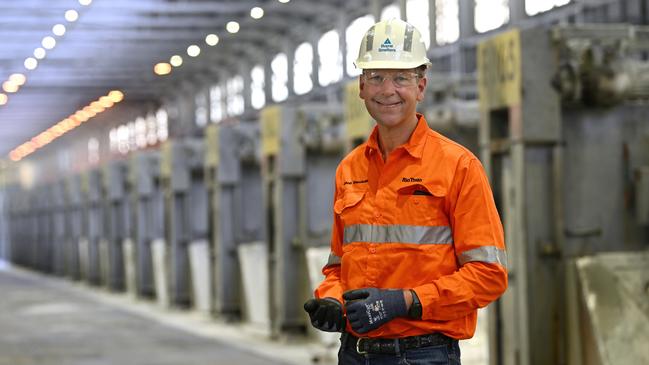Rio Tinto moves closer to $US6.7bn Arcadium Lithium takeover
Arcadium Lithium shareholders have voted in favour of the all-cash takeover, but hurdles around its Chinese significant shareholder remain.

Rio Tinto is a step closer to securing its biggest takeover deal since 2007 after Arcadium Lithium shareholders voted in favour of a $US6.7bn ($10.7bn) all-cash offer.
The vote shifts the focus to any final approval hurdles in the US, based on Chinese state owned-entity Chinalco’s 14.9 per cent stake in Rio.
The vote in favour comes despite three disgruntled shareholders taking legal action against Arcadium over the takeover.
They have filed lawsuits in US courts that allege Arcadium directors misled shareholders and failed in their fiduciary duty to maximise value.
Arcadium rejects the complaints and moved to clarify the situation in a statement to investors ahead of the December 23 vote on the takeover offer.
Rio, dual listed on the ASX and in London, has plenty of financial firepower for the Arcadium acquisition but has said it is considering a share issuance as part of a goal to have more of the company owned on the ASX. More than 75 per cent of Rio’s value is traded on the London exchange under the dual listing structure.
Rio chief executive Jakob Stausholm recently said a share issuance was an option on the table in discussions around the big bet on lithium, which will push Rio’s net debt levels to about $US12bn.
“We have confirmed our credit rating, so it’s not something we have to do, but it’s something that’s worthwhile considering,” he told investors earlier this month.
Mr Stausholm also said he did not expect any problems with US approvals because of Chinalco’s shareholding, and was positive about opportunities that could flow from US president-elect Donald Trump’s return to the White House.
Rio expects to secure the remaining regulatory approvals before June 30 and has already secured many of the green lights it needs in Australia, the UK, the US and China.
In a statement on Tuesday, Rio said: “We are pleased to have reached this milestone and continue to be confident in the significant value that this transaction represents for both companies’ shareholders.
“We are building a world-class lithium business that couples Rio Tinto’s scale, development capabilities and financial strength with Arcadium’s tier-one lithium portfolio.”
The Rio board this month approved spending $US2.5bn to expand the company’s Rincon lithium project in Argentina, and it is trying to progress the $US2.4bn Yadar project in Serbia in the face of local opposition.
Rio predicts sales of lithium could make up 13 per cent of its earnings over the longer term under plans to become less reliant on iron ore.
Arcadium CEO Paul Graves welcomed the shareholder vote in support of the Rio takeover.
“Together, we enhance our capabilities to successfully develop and operate our assets while supporting the clean energy transition. We are confident that this transaction will provide future benefit to our customers, employees and the communities in which we operate, and I am excited by the path ahead,” he said.
Rio’s offer was pitched on October 6 at a 90 per cent premium to Arcadium’s closing price two days earlier.
It is Rio’s biggest takeover deal since the $US38bn acquisition of Alcan in 2007.
Rio is aiming to build three lithium brine super sites in Argentina, including Arcadium’s Sal de Vida and Olaroz operations, and also has ambitions to build other projects in South America and Canada that it will pick up in the takeover.
Arcadium, chaired by former Woodside Energy boss Peter Coleman, was formed in January when shareholders in Livent and Allkem signed off a $US10.6bn merger. The Rio target’s assets include lithium processing plants in Japan, China and North America, with Tesla, BMW and General Motors among its carmaker customers.
The Arcadium shareholder meeting, where almost 98 per cent of votes cast were in favour of the Rio bid pitched at $US5.85, came after the stock traded at well below that mark for much of December.
Rio expects the lithium market to grow five-fold by 2035 and is banking on getting its timing right as it invests in growth projects against a backdrop of oversupply and low prices.


To join the conversation, please log in. Don't have an account? Register
Join the conversation, you are commenting as Logout